Rare Conversations with Roberta Katz
Below the video is an edited excerpt of that conversation.
On why Katz and co-authors Ogilvie, Shaw, and Woodhead wrote “Gen Z, Explained”:
Gen-Z started around 1995—the year the world wide web became accessible, and Amazon sold its first book online. And since then: smartphones, the great recession of 2008, genetic engineering, social media, online banking, and online everything….all that has happened since 1995, while these young people were growing up.
Change is hard for people, and yet, it’s happening. How to make that easier and less frightening is always of interest to me. We wrote the book to promote understanding, from the perspective of older people, of where young people are coming from. But we also want younger people to understand why their experience growing up has been so different so that they can understand older generations better.
[Editor’s note: The author’s research is focused on Gen Z in the U.S. and U.K.]
On how change has shaped Gen Z:
Because they spent more time online, Gen Z kids found community online, and became very aware of the world at large, began to care very much about others. So, it’s reflected in their emphasis on diversity; they are very protective of a range of identities and are willing to engage in a quest for identity.
We are in the midst of value change as a society. Societally, we are just finding our way to how to do a better job of dialogue. And we’re going through a birthing process, operating at a much bigger scale than society used to operate because of the digital tools. The internet and the world wide web are all about communication, and they’re more powerful communication tools than we’ve ever had. Young people are in communication all the time, even more than we used to be. Since everything is fast and Gen Z grew up with this tool, they are very good at using it.
On the Gen Z findings that surprised her the most:
The book’s title is “Gen Z, Explained” because we wanted Gen Z to explain who they are. There have been so many epithets about this generation – called snowflakes and lazy. But when we asked them their preferred form of communication, they said “in-person” and talked about intimacy and clarity. And when we started to ask them about their values, we thought they might resist; but on the contrary, they leaned in. They wanted to talk about their values. High on their list of values was something else that surprised us: flexibility. Growing up with so much constant change, they needed to be flexible.
On the #1 issue Gen Z brought up in surveys and interviews:
When we asked people to list their various fears, they talked about injustice, gun violence, a range of things. But the #1 issue they brought up in surveys and interviews was climate change.
Young people do not have a past to hang onto. I hope that understanding the world as seen by these younger people will help us keep a future-oriented perspective in mind and not be afraid of that. Accepting the degree of change and not trying to hang so tightly to the past is crucial. Young people are necessarily having to look to the future, and we owe it to them to work with them on that. It’s what drives me.
On the importance of listening and empathy for successful intergenerational dialogue:
We approached this book as a cultural study. Any time you have a group, the group will share some practices, values, and beliefs, and that is a culture. The whole idea is to build bridges and increase cross-generational understanding, which is so needed given the scale of the problems we face, not least of which is climate change. And this bridging happens person-to-person because that is how we best connect.
And I love that Rare does that, goes into hundreds of communities around the world, listens to diverse stakeholders, and brings in the science of human behavior as part of Rare’s unique methodology. When communities are visibly engaged in such dialogue, they become a part of the solution to the conservation challenges facing them. The dialogue is so important.
If you think about conservation, the healthiest ecosystems are those that are diverse. We – humans – constitute a form of an ecosystem and anthropologists have the skillset to help bridge, acknowledge, and explore that difference. It is a unique skill set among the social sciences. Changing human behavior is the lynchpin to tackling the climate crisis, which is why the work of Rare’s Center for the Behavior and the Environment is so critical.
***
Roberta Katz is a Senior Research Scholar at the Center for Advanced Study in the Behavioral Sciences at Stanford University. Rare Conversations is a virtual salon series featuring live, engaging conversations that explore how behavioral insights are expanding the field of conservation.
To join us for more Rare Conversations, subscribe to our monthly newsletter. To learn more about the Center for Behavior & the Environment at Rare, visit http://behavior.rare.org.


